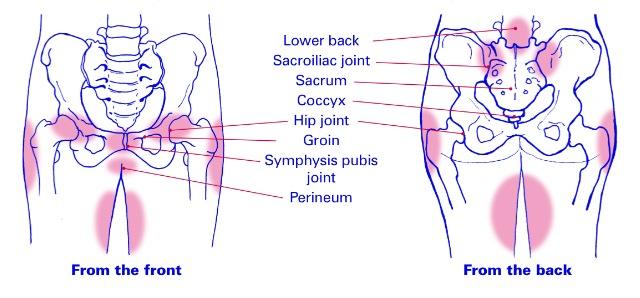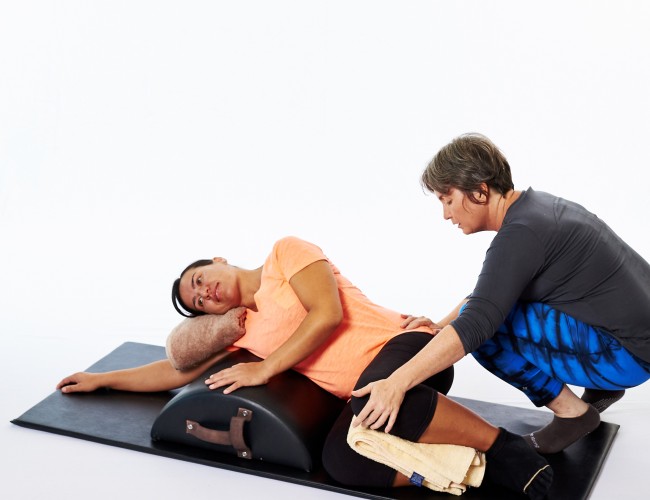Pelvic girdle pain during pregnancy
Fri,Jun 10, 2016 at 12:06PM by Body Organics
During pregnancy, the body goes through many weird, wonderful and sometimes uncomfortable changes. In particular, a hormone called relaxin is released to prepare the body for childbirth. Relaxin softens the ligaments in the pelvis and other joints, in order to help the baby pass through the pelvic area during birth. Although relaxin exists for good reason, it can cause pain in the joints and pelvis. One common representation of pelvic pain during pregnancy is pelvic girdle pain (PGP). The diagram below displays the areas of the body that are most affected by PGP.
What is pelvic girdle pain?
Pelvic girdle pain arises from the sacroiliac and/or pubic joints (the area where your hip joints attach to your tailbone). PGP can be felt in the lower back, buttocks or groin and can travel into the thighs or from side to side.
Why does pelvic girdle pain occur?
PGP can occur due to a multitude or combination of factors including:
// Pelvic instability
// Rapid weight gain
// Pre-existing low back pain or hypermobility
// High BMI
// Poor ergonomics, exercise choice, footwear
// Weak pelvic floor muscles
For pregnant women, the cause is often one of the above factors combined with the release of the relaxin hormone at >20 weeks into pregnancy.
Activities to avoid if you suffer from pelvic girdle pain:
// Single legged exercises such as lunges
// Crossing legs
// Swimming: use a buoy between legs, no breast stroke or resistance walking in shallow water
// Caution rolling in bed: do so using double legged block movement
Relief for pelvic girdle pain:
Depending on your presentation of symptoms, some of the below may be recommended by your therapist to provide pain relief:
// Ice SIJ or pubic joints
// Compression belt
// Avoid aggressive activities
// Increase stability; pelvic floor exercises, transverse abdominis
// Massage
Keeping active is important to staying healthy and preventing other complications. If you think you might be suffering from pelvic girdle pain, book an appointment with one of our experienced physiotherapists today. For more information on PGP during pregnancy, see this link.
 0
0 

